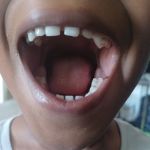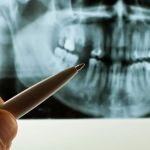How to Prevent Gum Recession with Better Hygiene: Essential Tips for Healthy Gums
- 1. Understanding Gum Recession and Its Causes
- 2. The Importance of Oral Hygiene in Preventing Gum Recession
- 3. How Proper Tooth Brushing Can Protect Your Gums
- 4. The Role of Flossing in Preventing Gum Recession
- 5. Lifestyle Changes to Support Gum Health
- 6. When to Seek Professional Help for Gum Recession
Gum recession is a common dental issue where the gums pull away from the teeth, exposing the tooth roots. This condition can lead to sensitivity, discomfort, and even tooth loss if not addressed. One of the most effective ways to prevent gum recession is by practicing good oral hygiene. In this article, we will explore how to prevent gum recession with better hygiene practices, including brushing techniques, flossing, and lifestyle changes that can help protect your gums.
The Importance of Oral Hygiene in Preventing Gum Recession
Maintaining excellent oral hygiene is essential in preventing gum recession. Poor oral care can lead to plaque buildup along the gum line, which causes irritation and can lead to gum inflammation or gingivitis. Left untreated, this can cause the gums to recede and even result in periodontal disease.
Brushing your teeth at least twice a day and flossing daily are fundamental to keeping plaque under control and ensuring that your gums stay healthy. Regular visits to the dentist for professional cleanings are also important, as they help remove tartar buildup that can contribute to gum recession.
How Proper Tooth Brushing Can Protect Your Gums
The way you brush your teeth plays a crucial role in preventing gum recession. Using a toothbrush with soft bristles is key, as hard bristles or aggressive brushing can wear away gum tissue over time. It’s also important to brush with gentle pressure and use circular motions to clean your teeth effectively without harming your gums.
Tooth Brushing Tips:
- Use a soft-bristled toothbrush.
- Brush in gentle, circular motions instead of back-and-forth scrubbing.
- Avoid brushing too hard, as this can damage both your gums and enamel.
- Make sure to clean along the gum line where plaque is most likely to accumulate.
Proper brushing techniques help prevent gum irritation and keep your gums firm and healthy, reducing the risk of gum recession.
The Role of Flossing in Preventing Gum Recession
Flossing is an essential part of oral hygiene that often gets overlooked. It helps remove plaque and food particles from between the teeth and below the gum line, areas that a toothbrush can’t reach. If plaque is left in these areas, it can irritate the gums and contribute to gum recession.
Daily flossing not only helps prevent gum disease but also strengthens the gums, preventing them from pulling away from the teeth. If you’re not sure how to floss correctly, ask your dentist for guidance to ensure you’re using the proper technique.
Lifestyle Changes to Support Gum Health
Beyond brushing and flossing, certain lifestyle changes can help you maintain healthy gums and prevent gum recession. Here are some additional practices to consider:
- Quit Smoking: Smoking weakens the immune system, making it harder for your gums to fight off infection. It also reduces blood flow to the gums, which can hinder healing and contribute to gum recession.
- Eat a Balanced Diet: A diet rich in vitamins and minerals, particularly vitamin C, helps support gum health. Include plenty of fruits and vegetables in your diet, as they help keep your gums strong and healthy.
- Manage Stress: Chronic stress can contribute to gum disease by weakening your immune system. Managing stress through exercise, meditation, or relaxation techniques can help keep your gums in top shape.
Incorporating these lifestyle changes into your routine can complement your oral hygiene practices and help protect your gums from recession.
When to Seek Professional Help for Gum Recession
If you notice that your gums are receding or if you experience sensitivity or discomfort, it’s important to consult with a dentist or periodontist. Early intervention can prevent further damage and may involve professional cleaning, gum grafts, or other treatments to restore gum health.
Regular dental checkups are also essential, as a dentist can spot early signs of gum recession and recommend treatment before it becomes a more serious issue. Don’t hesitate to seek professional help if you’re concerned about your gum health.
For more information on preventing gum recession and maintaining oral health, visit Dentistry Toothtruth for expert advice and services.







 Catonfield Dental4.0 (561 review)
Catonfield Dental4.0 (561 review) Jill Sonner DDS4.0 (29 review)
Jill Sonner DDS4.0 (29 review) South Bay Children's Health Center5.0 (106 review)
South Bay Children's Health Center5.0 (106 review) Fox Valley Dental Care, LLC4.0 (21 review)
Fox Valley Dental Care, LLC4.0 (21 review) Hamner Dental Group and Orthodontics4.0 (257 review)
Hamner Dental Group and Orthodontics4.0 (257 review) Lake Lanier Smiles4.0 (684 review)
Lake Lanier Smiles4.0 (684 review) The Importance of Oral Health Education During Pregnancy for a Healthy Pregnancy
The Importance of Oral Health Education During Pregnancy for a Healthy Pregnancy Best Tips for Brushing Your Teeth Properly for Healthy Gums: Essential Techniques for Oral Health
Best Tips for Brushing Your Teeth Properly for Healthy Gums: Essential Techniques for Oral Health Why Skipping Dental Checkups Can Lead to Bigger Oral Health Problems
Why Skipping Dental Checkups Can Lead to Bigger Oral Health Problems Advantages of Porcelain Dental Restorations
Advantages of Porcelain Dental Restorations How Can Diabetes Cause Tooth and Gum Problems? Preventing and Managing Oral Health Issues
How Can Diabetes Cause Tooth and Gum Problems? Preventing and Managing Oral Health Issues Healthy Habits for Promoting Good Oral Health and Hygiene: Tips for a Healthy Smile
Healthy Habits for Promoting Good Oral Health and Hygiene: Tips for a Healthy Smile